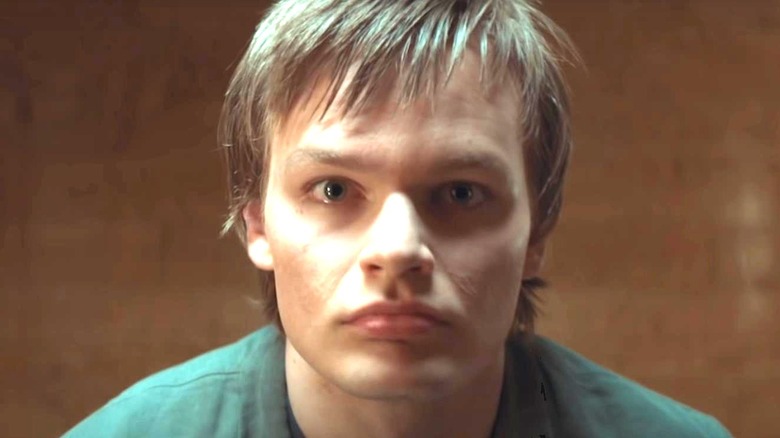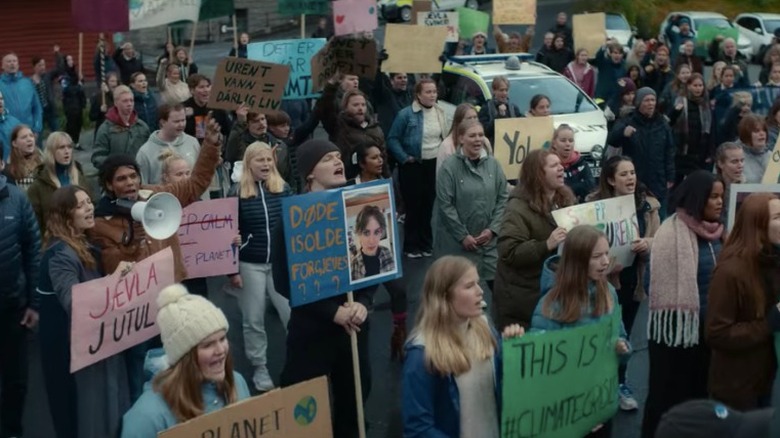This Is The Best Episode Of Netflix's Ragnarok Ever According To IMDb
With two seasons under its belt and a third hopefully on the way, Netflix's contemporary incarnation of ancient Norse mythology, "Ragnarok," has no shortage of exciting and relevant episodes. That said, according to the series' IMDb page, there's one episode that tops all others among viewers of the show, with a rating of 8.3/10.
The episode in question sees the young citizens in the small, Norwegian town of Edda rise up in protest against Jutul Industries (a greedy, corporate "giant" owned and operated, unbeknownst to most, by actual Frost Giants in the guise of humans). The company has been polluting the village and its drinking water supply for years, while at the same time forcing the townspeople to be economically dependent on its factories. It's an issue that plagues real-world Norway (minus, presumably, the Frost Giant element) and one that brings the series' approach and all-too-relevant subtext into stunning relief.
That episode is, of course, Season 2 Episode 3, "Power to the People," which brings a number of the series' most thematically compelling conflicts — from the epic to the environmental to the everyday — to a dramatic head. But in addition to the more grandiose qualities, the episode also empowers its protagonists on a more personal level. Clearly, viewers were impressed.
Power to the People lives up to its name
One of the most compelling aspects of Netflix's "Ragnarok" is its ability to pull the mythological into the day-to-day lives of its contemporary characters and audience. And "Power to the People" does this in spades.
Not only does the episode see Jonas Strand Gravli's Laurits (aka Loki) experience dramatic personal growth with regard to his own identity issues — including his lineage, his sexuality, and his gender identity — it also allows one of its most conflicted villains, Herman Tømmeraas' Frost Giant Fjor, to move momentarily into the realm of the romantic hero. Fjor, who's accidentally fallen in love with the very human Gry (Emma Bones), leads the protest against his family's corporation after seeing the effects its evil, capitalistic endeavors have had on Gry and her family. Moreover, the episode hits viewers on a deeply personal level when Gry's father dies due to complications from cancer (a result of the years he spent working in the Jutul factories), and even weaves an important twist into its overarching plot.
For the majority of the episode, it seems Laurits has chosen a side, abandoning his mother and half-brother Magne (David Stakston) to join forces with his real father, Frost Giant Vidar Jutul (Gísli Örn Garðarsson). In the end, however, we learn that Laurits never intended to betray his brother, and has been manipulating Vidar throughout the episode to gain access to his home.
Finally, the episode highlights our psychological relationship with characters like Loki. While we enjoy seeing our own human weaknesses reflected in these conflicted, occasional antagonists, we ultimately love nothing more than to see them resist temptation, choose the right side, and demonstrate a kind of courage we all secretly hope resides in us as well.

